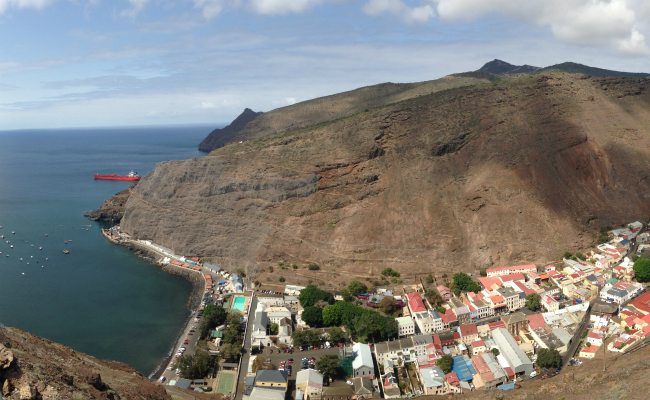
By Gerry Nosowska
St Helena is a volcanic island in the middle of the South Atlantic, 10.5 miles long by 6.5 miles wide, with a population of around 3, 700. Currently the only way to and from the island is the Royal Mail Ship which visits every month from Cape Town. It is a self-governing UK overseas territory and people there are British citizens.
Shaken by scandal
Last year the island was shaken by scandal when allegations emerged of covered up child abuse taking place on a large scale.
When I visited the Safeguarding Directorate responsible for children’s and adults’ social care set up last year, I found that its main focus has been child protection following the painful exposure of abuse. But I wanted to learn about how adult social care was being carried out amidst this pressure, in such a remote and remarkable setting.
St Helena has the advantages that small communities bring of strong relationships and opportunities for creative work. Research on social care in remote places shows that they encourage relationship-based work and community involvement, flexibility and joined up work with other agencies.
Small community
People on St Helena look out for each other, they talk to each other and they include one another. While I was there, people knew what I was doing, they asked me how I was getting on, helped me, waved to me and offered me lifts. There is nobody on the island whose need would not be noticed. People exchange expertise, barter and offer reciprocal help.
On the other side, remote places face issues from lack of resources, including expertise. Staff there need support for their development and with managing the tensions that arise from working with people they know well.
Potential
Adults’ services on the island have real potential. Vulnerable people currently have care and support from families and friends and, when needed, from sheltered housing, supported living and the Community Care Centre. There are disability living allowances and carers’ allowances; and there are close links with the hospital and community nurses.
However, there are no formal systems, no policies and procedures, and no community services. Much work is needed to create real choice and control for service users, to develop care workers’ skills, and to ensure everyone is safeguarded.
Person-centred work
I think there is great scope on the island for person-centred ways of working, and for care and support that builds on individuals’ and the community’s strengths. This needs to start with developing individual, responsive care for people who currently have very limited choice and control, particularly those who have been in institutional care.
The island’s new manager for adults’ services, Paul, aims to draw on local expertise and ensure local involvement so that services fit St Helena and are sustainable. For example, currently if someone has a concern about someone, they stop the social worker on the street and mention it. More formal systems might put people off raising issues.
Lessons to learn
St Helena has the opportunity to develop adults’ services that are less bureaucratic than in the UK, more approachable and more personal.
There is a lot to do in St Helena and a lot it can learn from the UK about what has worked here, including from Making Safeguarding Personal and Think Local Act Personal.
But I think we too have lessons to learn from this remote island about how to do good community social work.


 Bournemouth, Christchurch and Poole
Bournemouth, Christchurch and Poole  Hampshire County Council
Hampshire County Council  Lincolnshire County Council
Lincolnshire County Council  Norfolk County Council
Norfolk County Council  Northamptonshire Children’s Trust
Northamptonshire Children’s Trust  South Gloucestershire Council
South Gloucestershire Council  Wiltshire Council
Wiltshire Council  Wokingham Borough Council
Wokingham Borough Council  Children and young people with SEND are ‘valued and prioritised’ in Wiltshire, find inspectors
Children and young people with SEND are ‘valued and prioritised’ in Wiltshire, find inspectors  How specialist refugee teams benefit young people and social workers
How specialist refugee teams benefit young people and social workers  Podcast: returning to social work after becoming a first-time parent
Podcast: returning to social work after becoming a first-time parent  Podcast: would you work for an inadequate-rated service?
Podcast: would you work for an inadequate-rated service?  Family help: one local authority’s experience of the model
Family help: one local authority’s experience of the model  Workforce Insights – showcasing a selection of the sector’s top recruiters
Workforce Insights – showcasing a selection of the sector’s top recruiters 

 Facebook
Facebook X
X LinkedIn
LinkedIn Instagram
Instagram
Comments are closed.